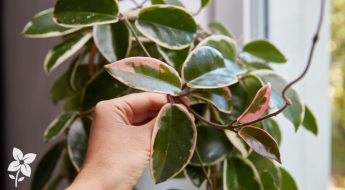
The Mosquito Proof Yard
By: Rob Sproulemosqutio
Standing Water
Changing the Habitat
Defence
Disease: Myths and Facts
Nature is wondrous. While my bug articles are usually, inevitably, about getting rid of said bug, I normally begin with a short, wide-eyed rant meant to express my fascination, and hopefully sow some appreciation, for the tiny critter. You won’t find any such rant here.
Yes, mosquitos are a triumph of evolution, but they are so bewilderingly infuriating that if I tried to sow appreciation I fear that you, gentle readers, would -justifiably- arm yourselves with pitchforks and torches. So let’s get to the business of evicting them from our lives. This is a chemical-free article, because there are a lot of things we can do in the yard to keep Canada’s most annoying insect at bay. Before reaching for the aerosol can, here are some tips for effective passive resistance.
Standing Water:
Mosquitos’ quick life cycle (they can sprint from egg to annoying in 4-6 days), means that you always have to monitor your yard for changing conditions. Luckily, they need a very specific, and often controllable, element: standing water. Eliminating standing water is easy, organic, and über effective. Do a yard “audit” by walking every inch of it. Make sure to get off your usual pathways and stick your nose behind bushes and around sheds. Look for old wheelbarrows, forgotten birdbaths, half-buried tarps, and anything else that can accumulate rain water.
With your standing water “audit” done and everything drained, put a weekly reminder in your calendar to drain/ replace the water in your birdbaths, wading pools, and any other deliberate standing water zones. It needs to be this often to keep their quick life cycle at bay. You don’t need to worry about running or treated water. Not many people associate eavestroughs with mosquitos, but partly clogged troughs (if you have big trees in the yard, that probably means you), create pockets of ideal skeeter habitat. Clean those gutters in the spring and check them periodically.
Changing the Habitat:
We’ve all walked through damp summer grass and seen the biting hoards buzz upwards en masse like a bad horror movie. While it’s a myth that skeeters breed in tall grass, they certainly like to rest there. Dew provides a refreshing drink and there’s a built in alarm system (ie. your foot) to tell them when dinner is near. Like Tolkein’s orcs, mosquitos have no love of sunlight. They’re most active at dawn and dusk and dwell in cool, still shade. Keeping your shrubs and trees neatly pruned will eliminate hiding and resting places (not to mention making your yard look better).
Defence:
One of the best parts of summer is hanging out, usually around twilight, in the yard with a cold beer or three. Don’t let rampaging skeeters chase you inside! It’s surprisingly easy to establish a defensive perimeter around your favourite hang-out spot. Outdoor living spaces are the ideal places for container gardens. When you’re planning your spring containers, incorporate skeeter-deterring plants like Citronella Geraniums, Lemon Grass, Rosemary, Ageratum, and Lemon Thyme. They are as beautiful as any other annual and their smell will help keep them at bay.
Know your enemy. Mosquitos are weak flyers and shun wind. Keeping them off your patio can be as simple as setting up a few fans to circulate the air around you. For more traditional methods, there’s a lot of citronella candles, zappers, smokers, etc to choose from. There’s even a phone app that emits a supersonic pulse to obstinately keep them at bay, but don’t use it if you want your pets to come round.
Learn more about mosquito control, with Alberta’s Best Gardening Blog
Disease: Myths and Facts:
Have you ever smacked a mosquito and wondered uncomfortably whether that bloody smear on your arm belongs to you, your dog, or the guy down the street? The good news is that it’s almost always your blood; mosquitos rarely take their blood feast (it’s actually called “blood feast”) from more than one victim. The better news is that it’s virtually impossible to contract infamous blood-borne diseases, like HIV and Hepatitis, from a mosquito bite. Not only do they only typically have one victim, but those viruses die very quickly inside a mosquito.
The next time you’re complaining about our frigid winters, imagine worrying about horrific diseases like malaria and dengue fever every time a skeeter bites you. We’ve all heard a lot about West Nile virus in Canada, and while that should be an extra incentive to take precautions, it’s not something that we need to be scared about as the number of reported cases are very small.
















